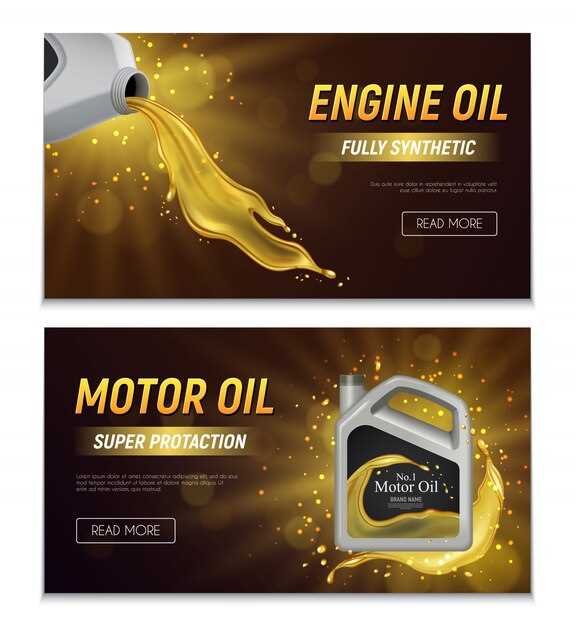

When it comes to maintaining the performance and longevity of your diesel engine, the choice of oil plays a crucial role. There are two main types of engine oils available for diesel engines: synthetic oil and conventional oil. Each type has its own set of advantages and disadvantages, making the choice between the two an important consideration for any diesel engine owner.
Synthetic oil is engineered to provide superior protection and performance under extreme conditions, while conventional oil is derived from natural crude oil and has been used for decades. Understanding the key differences between these two oil types can help you make an informed decision that best suits the needs of your engine. Factors such as viscosity, thermal stability, and wear protection are essential to consider when determining which oil will ensure the efficiency and reliability of your diesel engine.
Ultimately, the choice between synthetic and conventional oil should be based on the specific operating conditions of your diesel engine, your driving habits, and the manufacturer’s recommendations. By weighing the benefits and drawbacks of each option, you can select the oil that will optimize performance and extend the life of your engine.
Impact on Engine Performance and Longevity
Synthetic oil has become increasingly popular among diesel engine owners due to its superior performance characteristics compared to conventional oil. One of the primary benefits of synthetic oil is its enhanced lubrication properties, which lead to reduced friction between engine components. This reduction in friction results in significantly improved engine efficiency, contributing to better fuel economy and overall performance.
Additionally, synthetic oil tends to have a higher resistance to thermal breakdown. Diesel engines generate considerable heat, especially under heavy loads. Synthetic oil maintains its viscosity and protective qualities at elevated temperatures, ensuring that engine components remain adequately lubricated and protected from wear, even during extreme operating conditions.
The longevity of diesel engines is another critical aspect influenced by the type of oil used. Synthetic oil provides superior oxidation stability, which helps to minimize the formation of sludge and deposits within the engine. This cleanliness is essential for maintaining optimal performance over time and can lead to longer intervals between oil changes, ultimately reducing maintenance costs.
Furthermore, synthetic oils often contain advanced additives that help in controlling corrosion and preventing wear, which prolongs the life of the engine. These additives can effectively neutralize acids generated during combustion, reducing the risk of damage to engine components and ensuring a longer operational lifespan.
In summary, choosing synthetic oil for diesel engines can lead to notable improvements in performance and longevity. Its superior lubrication, thermal stability, and cleanliness contribute to enhanced engine efficiency and reduced wear, making it a wise investment for anyone aiming to maximize the lifespan and effectiveness of their diesel engine.
Cost Considerations: Is Synthetic Worth It?

When deciding between synthetic oil and conventional oil for diesel engines, cost plays a significant role in the overall choice. While synthetic oil typically comes with a higher price tag, many owners weigh the long-term benefits against the initial investment.
Synthetic oil offers superior performance, providing better lubrication, reduced engine wear, and enhanced fuel efficiency. These attributes can translate into fewer maintenance issues and potentially lower repair costs over time. Furthermore, synthetic oils generally have a longer lifespan, allowing for extended intervals between oil changes. This means fewer purchases in the long run, which can offset the higher initial purchase price.
On the other hand, conventional oil is more affordable upfront. For those operating on a tight budget or with minimal usage of their diesel engines, conventional oil might seem like the more sensible choice. However, the decreased longevity and protective qualities of conventional oil can lead to more frequent changes and a higher likelihood of damage over time, which can lead to costly repairs.
In essence, the decision between synthetic and conventional oil should consider not only the immediate expense but also the overall cost-effectiveness in the context of long-term engine health. For diesel engine owners prioritizing performance and longevity, synthetic oil often proves to be worth the investment, ultimately saving money by reducing maintenance and enhancing the lifespan of the engine.
Viscosity Ratings and Their Importance for Diesel Engines

Viscosity ratings play a crucial role in the performance and longevity of diesel engines. These ratings indicate the thickness and fluidity of engine oil, which directly affects how well it can lubricate moving parts within the engine. The choice of oil viscosity can influence fuel efficiency, engine temperature management, and overall engine wear.
For diesel engines, selecting the appropriate viscosity rating is essential. A lower viscosity oil may provide better fuel efficiency and easier cold starts, but it can lead to insufficient lubrication under high temperatures and loads. Conversely, higher viscosity oils maintain their protective qualities at elevated temperatures but may hinder fuel economy or cause difficulty during cold starts.
Most diesel engines require multi-viscosity oils, which adapt to varying temperatures. For instance, an oil rated 15W-40 will flow like a 15-weight oil in cold conditions and maintain the protective properties of a 40-weight oil at operating temperatures. Choosing the right viscosity helps ensure optimal engine performance and protection during different operating conditions.
Moreover, viscosity ratings are often specified in the owner’s manual, guiding owners towards the most suitable oil for their specific diesel engine. Adhering to these recommendations is important for maintaining warranty coverage and preventing engine issues that may arise from using incorrect oil types.
In conclusion, understanding viscosity ratings allows diesel engine owners to make informed choices about engine oil, ensuring efficient performance and extended engine life. The right choice of oil viscosity can significantly impact both the performance and reliability of diesel engines over time.






